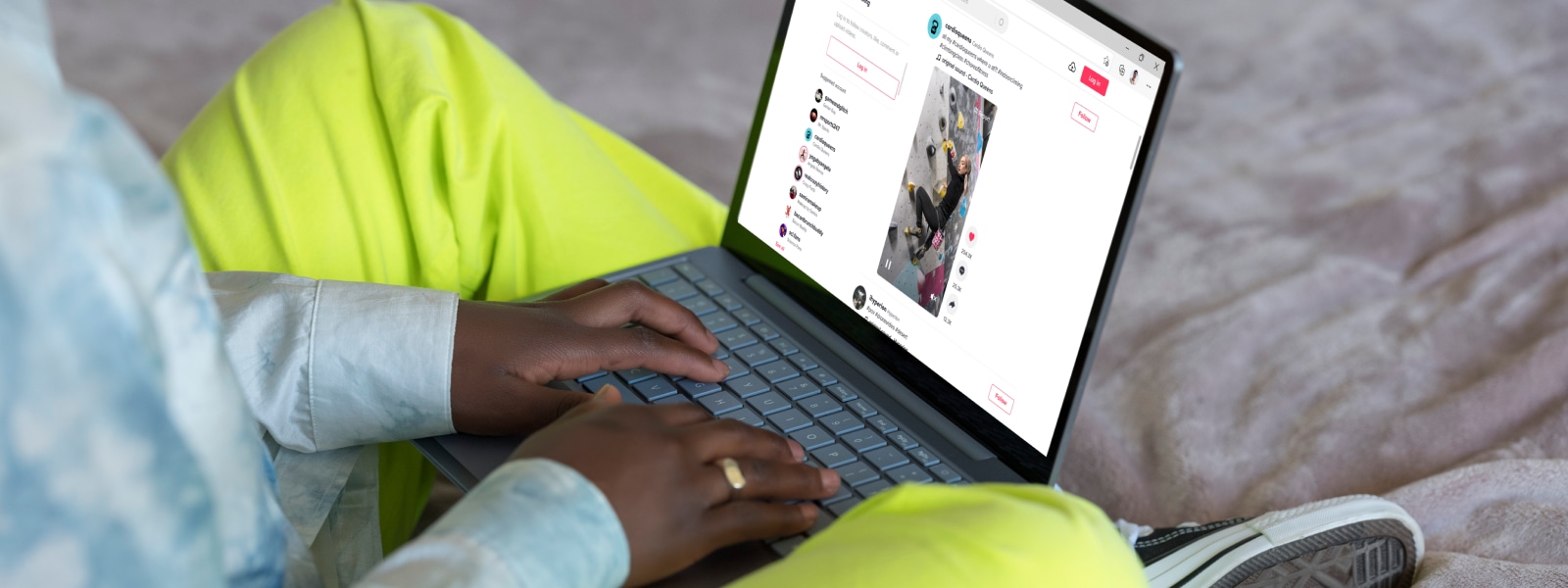
Online safety tips
Parents and policy makers can help young adults pay attention to their online reputation and take steps to ensure a positive persona – personally and professionally.

The Digital Civility Challenge
Microsoft encourages everyone to take the challenge to help make the internet a safer place. Our fifth Digital Civility Index showed digital interactions and responses to online risks are improving around the world.

Adolescent mental health in the age of AI
The new age of AI brings new opportunities—and new safety considerations, including how technology may impact adolescent mental health. As a part of our deliberative and responsible approach to safety and AI, we partnered with the CERES (Connecting the Ed Tech Ecoystem) research network to help build a shared understanding of the current research landscape and focus of future efforts.
Money
Young people are a common target of identity theft because they tend to have good credit, and often fail to fully protect their personal details.

Don’t share private information
Real companies (like banks, online retailers, and credit card companies) won’t ask for those details over email, so don’t respond—even if the email’s images and language sound official or include alarmist messages (like “Your account will be closed!”).
Don’t conduct financial activities on public computers
Don't conduct financial activities on public computers. Criminals install keystroke recognition software on public computers to spy on what you type. Hackers can also log into your accounts after you’ve left the computer unless you take steps to block them. If you do go online on a public computer, like at school or the library, make sure to disable the automatic log-in feature (it’s usually a box beneath the field for your password) and log out before you leave the computer. It’s not enough to close the browser.
Create strong passwords
Once criminal have your username, something that is often easy to find, they try to break into your account by trying the most common passwords. Create strong passwords to protect yourself. Your passwords should be at least eight characters long, that include letters, number, and symbols. Do not include common personal information (names, birthdays, addresses, or simple sequences like 12345). Also, make sure to change your passwords regularly and create different ones for each site so that if criminal break one password, your other accounts won't be compromised.
Use secure sites only
Some websites don’t use encryption software—a security measure that scrambles data as it crosses the internet—making them vulnerable to hackers. Fraudsters may also set up a webpage that looks identical to your bank’s or an online retailer, so you’ll enter your log-in information. Make sure the web address begins with "https" (the "s" stands for “secure”) and has an icon of a closed padlock—these signs mean the site is safe. Also, be wary of links sent to you, even from a friend. Fraudsters may break into your friend’s email or social media accounts to get you to click on sites that will download malware—software that can record your sensitive information.
Social media cliche
Answer multiple choice questions about your social media habits to learn which cliché you are.
Take the quiz

Pin Head
Using location services? Limit who knows your whereabouts, pay attention to where/when you check in, and link to social media with care.

Momarazzi
Be mindful about what you post online about your kids – of any age. You might be putting them at risk by revealing their current location, age, school, etc.

Team Emo
Don't post anything you'd only say to a close friend. Whether you're happy, sad, angry, or have money worries, confiding broadly could increase your online risks of being bullied, targeted for scams, or worse.

Hashtag Hyper
Be selective about where and when you use hashtags to avoid oversharing your location. Keep sensitive details to yourself that could be used to defraud; impersonate; or find your home address, phone and account numbers, birthdate, or photos without your knowing it.

Selfie Centered
Before you post any pictures, videos, or comments online, ask yourself: Could this tarnish my reputation? Think before you post; it will be there a long, long time.







